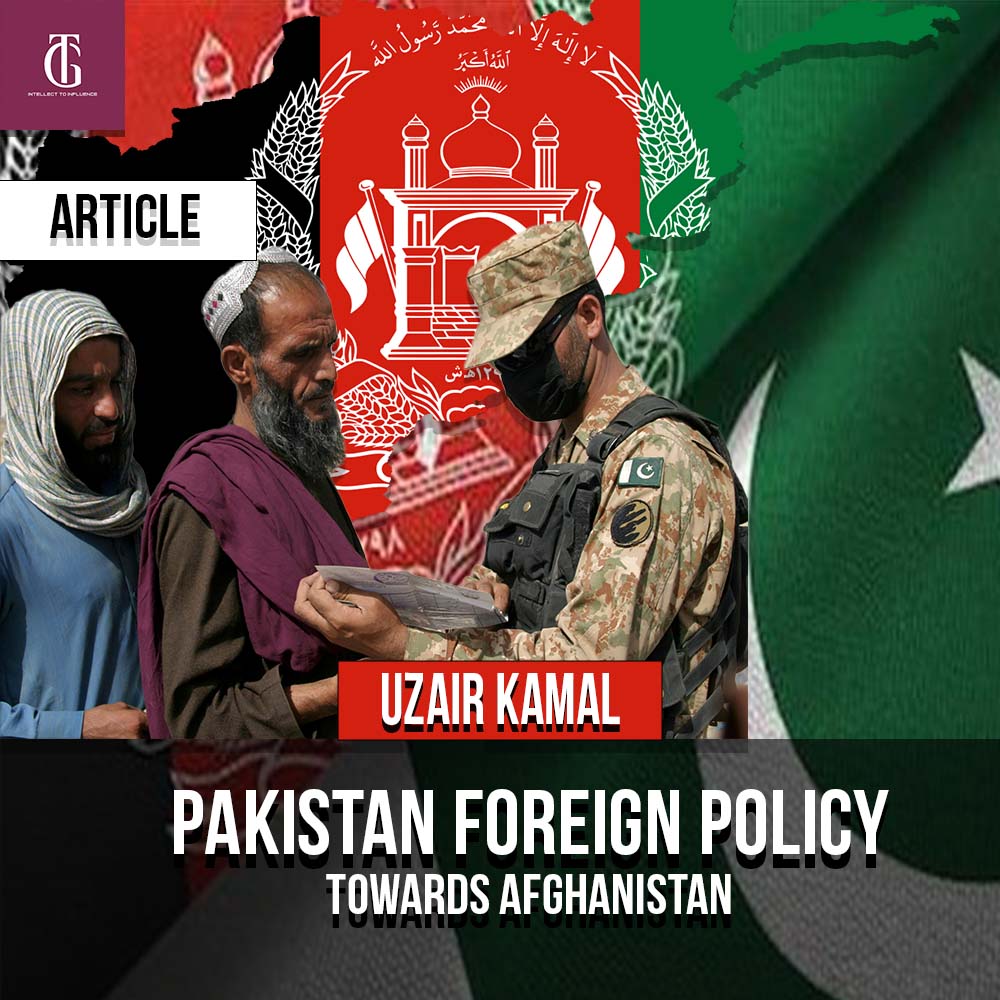Understanding Pakistan’s Foreign Policy towards Afghanistan
Theoretical foundations
Foreign policy has adopted its definition based on its role in global dynamics, which influences the behavior of states, both in their interactions with specific neighbors and in a more general sense. The terms “particular” and “general” find unique applications in the foreign policy challenges faced by two neighboring countries, Pakistan and Afghanistan. In this context, the “particular” aspect pertains to the continued one-way intervention of Pakistan in Afghan affairs, casting a shadow on its policies. The masses perceive this intervention as forceful, turning it into a psychological issue as they subsequently seek to reverse it. As Duncan Bell points out, “The last wars will not be fought based on the existence of evil here but on the differentiation between evil and good made by some people.”
The “general” aspect of foreign policy in this context has attracted considerable theoretical attention due to the intervention of major powers in Afghanistan. When viewing both the particular and general aspects through a single lens, it becomes evident that there is substantial evidence of traditional-historical international relations at play. However, the current scenario exhibits a high level of complexity resulting from the ambivalence characterizing this relationship.
Furthermore, according to Farhat Taj, understanding this issue in an ontological manner reveals that Afghanistan faces significant political pressure due to its unstable political institutional structure, while Pakistan experiences institutional pressure and influence that further complicates the dynamics between the two nations.
Pakistan’s Afghan policy
Pakistan’s Afghan policy is always viewed objectively as “Strategic Depth”. The term objective refers to the least understanding of Afghan affairs by an Institution that has instrumentalized everything at its disposal but miscalculated the shifting dynamics and the appeal that was shaping the atmosphere to its fullest. Pakistan’s support for the Afghan Mujahedeen after the USSR invasion was part of the same project. Colonel Ameer Sultan Tarar aka Col-Imam biography is a Pakistani State version of intervention into Afghan affairs. Ahmed Rashid points the seven-party joint organizations in Peshawar against the USSR were the brainchild of Pakistan’s secret services.
During and after the USSR-Afghan war, many widely believed that Pakistan might annex parts of Afghanistan to maintain a lasting influence.
An attempt made by the warlords in Jalalabad led by Pakistani General Hamid Gull against the Afghan Army failed terribly and exposed the commitments between the groups which would later turn against Pakistan itself. Some of these groups believe that curbing Pakistan’s influence is necessary, as they assert that Afghans should determine their own fate. Taliban somehow lingering between Pakistan support and their exerting influence over Afghan society has also taken similar influence as most of their top brass view Pakistan as an unreliable partner and neighbor.
Bette Dam supports this fact in her remarkable work on Taliban founder Mullah Omar. She refers to the fact that the latter never paid any heed to Pakistan’s suggestions and neither had he ever traveled until his death in 2013. The Karzai and Ghani era were full of expensive foreign diplomatic confrontations between Pakistan and Afghanistan. Each day has contributed to the mistrust between both countries.
Rethinking Afghan policy
After 9/11 the contours of Afghan policy shifted to new dynamics. The primary focus in the foreign policy towards Afghanistan initially was normalizing Pashtun Nationalist resistance. The remedy advised for the problem was religious parties. This has dual impacts on the understanding as Pakistani Pashtuns witnessed a social change to what Mariam Abou Zahab mentioned a change from traditionalism to religion, however, the dynamics are changing again and a popular mass is witnessing a shift again towards traditionalism.
This later has its conformation in the arrangements taking place at the public level. The Case of Afghanistan has impacts still unresolved and not calculated by Pakistan. The Afghan Masses and elites despite all sorts of engagements and confrontations bowed to the subjective explanation of the masses which hovered around the Durand case.
Ahmed Rashid hints at this spectrum in an example where Mullah Omar halted Pakistani officials during a meeting and asked them to normalize the Durand Line.
After 9/11 the shift in Pakistan’s policy towards Afghanistan has sewed seeds of disagreements even among its allies in the Afghan Lines and strengthened the fact that Pakistan has interpretations of its own. Pakistani Taliban is an offshoot of the Afghan Taliban ideologically and practices similar armed order politics against Pakistan in the present scenario. The actions of the former against Pakistan and the diplomatic politics of the latter are a replica of Pakistani politics during NATO infiltration in Afghanistan.
The case of understanding Pakistan’s foreign policy has a mitigated structure in the face of these certain and uncertain events. Foreign policy cannot shape itself on its own rather dependent on the issues taking place. Afghan Taliban in the face of previous events is trying to normalize their foreign policy spectrums not to seek attention of normal behavior from Pakistan but its public masses. They view a coercive policy against Pakistan as a tool to maintain internal support and order.
Pakistan needs to view the policy in the traditional spectrum, she has been adopting a coercive religious policy which has visible dividends even in the country and specific voices raised during political campaigns hint at the sectarian divides. Pakistan needs to opt for a policy of contribution as India did in Afghanistan. Furthermore, Pakistan should not view Indian influence timely as their investments have contributed to garnering support from the Public which has the least of chances for Pakistan.
Uzair Khan is an MPhil graduate in International Relations with a profound expertise in the intricate dynamics of Pakistan-Afghanistan relations.







